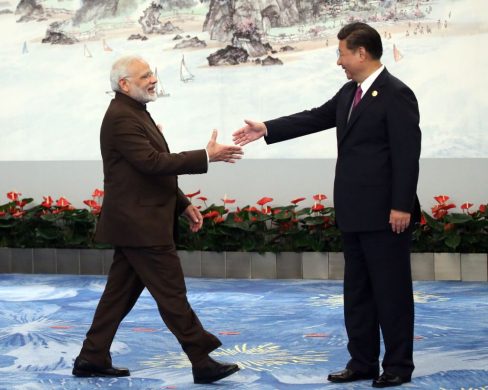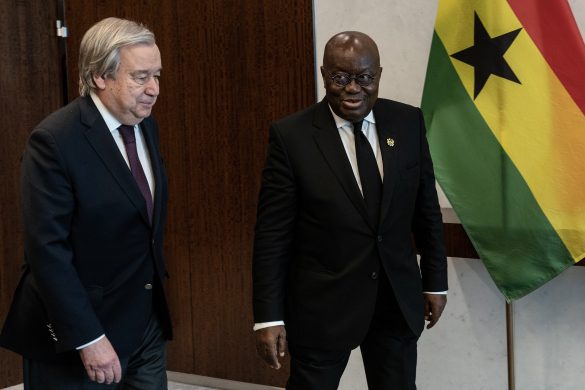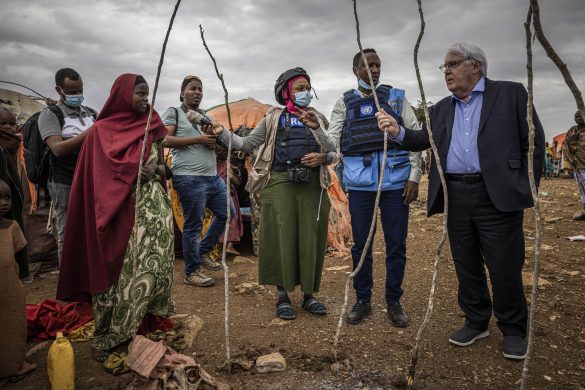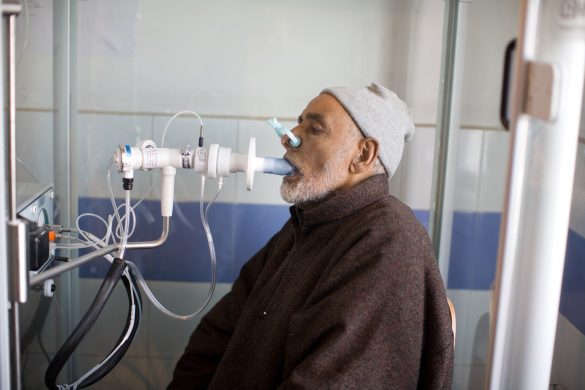Når afghanerne går til valg i april har de mulighed for at vælge en ny præsident og dermed opleve et fredeligt magtskifte. Men Taliban, der har opfordret til at boykotte valget, og andre anti-regeringsgrupper synes fulde af selvtillid. Alligevel mener politiske iagttagere, at et nyt styre kan bane vejen for fredsforhandlinger og forsoning.
KABUL, 11 March 2014 (IRIN) – In under four weeks’ time (5 April) Afghanistan’s 12 million voters will get the chance to elect one of 11 candidates to replace President Hamid Karzai, in what observers hope will be the country’s first ever peaceful and democratic handover of power.
It will be one of the biggest challenges in a vital year of transition for the country, which has seen nearly 35 years of protracted conflict. The election will probably be spread over two rounds and lead to a handover of power in July/August. Meanwhile, the Taliban (who are calling for a boycott of the elections) and other anti-government groups seem to be growing in confidence as NATO-led international forces prepare for complete or near-complete withdrawal by the end of the year.
For humanitarians and aid agencies, the transition will make for an unpredictable year.
“We know 2014 is going to be a critical year for Afghanistan, and Afghans will need continued support from the international community,” said Elizabeth Cameron, Oxfam Afghanistan’s policy and advocacy adviser. “But we must also learn from lessons of the past and be smarter with our aid investments in this transition year.”
As well as dealing with potential funding changes, key trends this year are expected to include an evolving conflict, more strain on basic health services and continued high levels of displacement.
Conflict
The country’s humanitarian coordinator, Mark Bowden, says the evolving security conditions are his major concern in 2014, as the Afghan National Security Forces take on more responsibility.
“We’re seeing a change in the nature of conflict – in the way that the conflict’s taking place. In part it’s because there are more ground operations, but that may well lead to more rapid sudden displacement,” he told IRIN in his Kabul office.
According to this year’s Humanitarian Needs Overview (HNO), “the nature of the conflict has changed in 2013: the parties are increasingly engaging in ambushes and ground engagements in provinces such as Kunar, Ghazni, Khost and Nangarhar, with a consequent sharp increase in civilian casualties.”
A recent infographic published by the US Agency for International Development (USAID) showed the increase in government casualties over the last five years, and also the geographic expansion of incidents.
The withdrawal of international forces will hurt the economy as contracts and local jobs disappear. But the head of the UN Office for the Coordination of Humanitarian Affairs (OCHA) in Afghanistan, Aidan O’Leary, says the pull-out is an essential process the country needs to go through.
“I think we have to recognize that there is no long-term peace, stability and prosperity in Afghanistan with 130,000 international troops, and a 100,000 military contractors supporting them, so that’s just not sustainable,” he said.
“On the security side, what we’ve basically seen in 2013 is a continued escalation of incidents with more contested areas, and obviously that raises lots of issues, whether it’s access to health care, whether it’s displacement of populations, or whether it’s acute food insecurity.”
Some analysts think a new government and the pull-out of foreign forces will not only create a more sustainable future, but also establish a more fruitful context for peace talks and reconciliation. Politically, analysts say, both sides seem to be waiting for the post-election order to be established before continuing with any peace talks. With fighting currently close to stalemate, they say, a long-term solution is likely to come from talks rather than the battlefield.
Læs mere af John James´ analyse
http://www.irinnews.org/report/99765/analysis-critical-year-ahead-for-afghanistan
http://www.irinnews.org/report/99765/analysis-critical-year-ahead-for-afghanistan














